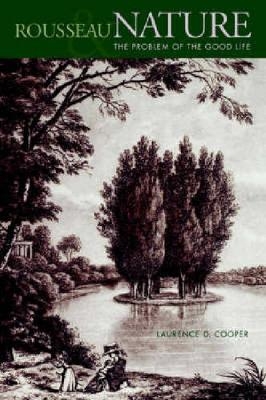
Rousseau, Nature, and the Problem of the Good Life
Seiten
1999
Pennsylvania State University Press (Verlag)
978-0-271-01922-2 (ISBN)
Pennsylvania State University Press (Verlag)
978-0-271-01922-2 (ISBN)
- Titel ist leider vergriffen;
keine Neuauflage - Artikel merken
An interpretation of Rousseau's thought that focuses on his complex concept of nature as one major key to understanding his legacy to modern political philosophy. It examines his efforts to show why, despite a challenge from science, nature can remain a standard for human behaviour.
The rise of modern science created a crisis for Western moral and political philosophy, which had theretofore relied either on Christian theology or Aristotelian natural teleology as guarantors of an objective standard for "the good life." This book examines Rousseau's effort to show how and why, despite this challenge from science (which he himself intensified by equating our subhuman origins with our natural state), nature can remain a standard for human behavior.
While recognizing an original goodness in human being in the state of nature, Rousseau knew this to be too low a standard and promoted the idea of "the natural man living in the state of society," notably in Emile. Laurence Cooper shows how, for Rousseau, conscience—understood as the "love of order"—functions as the agent whereby simple savage sentiment is sublimated into a more refined "civilized naturalness" to which all people can aspire.
The rise of modern science created a crisis for Western moral and political philosophy, which had theretofore relied either on Christian theology or Aristotelian natural teleology as guarantors of an objective standard for "the good life." This book examines Rousseau's effort to show how and why, despite this challenge from science (which he himself intensified by equating our subhuman origins with our natural state), nature can remain a standard for human behavior.
While recognizing an original goodness in human being in the state of nature, Rousseau knew this to be too low a standard and promoted the idea of "the natural man living in the state of society," notably in Emile. Laurence Cooper shows how, for Rousseau, conscience—understood as the "love of order"—functions as the agent whereby simple savage sentiment is sublimated into a more refined "civilized naturalness" to which all people can aspire.
Laurence D. Cooper is Assistant Professor of Political Science at Carleton College.
| Erscheint lt. Verlag | 10.11.1999 |
|---|---|
| Verlagsort | Pennsylvania |
| Sprache | englisch |
| Maße | 152 x 229 mm |
| Gewicht | 513 g |
| Themenwelt | Geisteswissenschaften ► Philosophie ► Ethik |
| Geisteswissenschaften ► Philosophie ► Geschichte der Philosophie | |
| Geisteswissenschaften ► Philosophie ► Philosophie der Neuzeit | |
| Sozialwissenschaften ► Politik / Verwaltung ► Politische Theorie | |
| ISBN-10 | 0-271-01922-0 / 0271019220 |
| ISBN-13 | 978-0-271-01922-2 / 9780271019222 |
| Zustand | Neuware |
| Haben Sie eine Frage zum Produkt? |
Mehr entdecken
aus dem Bereich
aus dem Bereich


